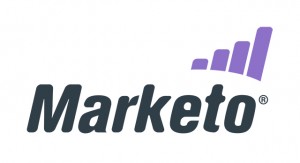— November 15, 2017

I’ve written before about the business start-up distractions you need to avoid. So I thought it was about time I shared with you the tools I could not live without in my business. Tools I wish I had known about from the start.
As my own businesses primarily operate online, most of the tools I use are based on content creation and social media management. But given that everything in business now is being geared towards being internet friendly, it’s even more imperative that business owners master not just these these tools but the online digital world in general.

MAILCHIMP
The key to growing your business is to start building your email list from day one. Amassing huge audiences on social media is great. Until said social media platform shuts down, boots you off or reduces your reach to about 0.1% of your following. If someone is brave enough to sign up to your email list then they have already made a significant investment in you/your business. You have a far higher chance of converting them into loyal customers. If you treat them well. Don’t go abusing the trust they have placed in you by handing over their email address for you to them spam the living daylights out of it. Do that and they’ll eventually unsubscribe.

There are all sorts of laws and rules when it comes to emails and some of these laws are set to get tougher next year. Personally, I’m hoping it will stop or at least reduce the huge amounts of spam I get every single day so I’m all for it. But when you start building your email list make sure you use a service such as MailChimp and ensure that every single person on that list has opted in correctly. Spam anyone at your own peril.
BUFFER/HOOTSUITE/SOCIAL JUKEBOX

The biggest excuse I hear for not maintaining social media accounts is that you don’t have time. I’m sorry but that excuse stopped being viable years ago. With tools such as Buffer and Hootsuite you can pre-schedule all your social media posts, curate a ton of content ready to go out and then just do the social bits. I use all 3 tools in different ways to ensure that my social accounts remain active and have a constant flow of relevant material.
I use Buffer to curate other people’s content to share with my audience. This will be blog posts and articles from trustworthy sources and reliable publications. With buffers queuing system it means that I can just click on something I like to add it to my Buffer.
I use Hootsuite to set up time specific posts. For example, if I post a new blog on a Monday I’ll then set up specific times that I want that blog post shared again to my social accounts, in 1 week, 1 month, 2 months, 3 months time etc. I also use it to set up my Instagram posts.
Both HootSuite and Buffer offer a free service if you are a light user with a couple of accounts.
Another great tool is Social Jukebox. I use this primarily for Twitter and only for my own evergreen content. I load up my own blog posts and nice motivational quotes (with my own images, not the contrived rubbish some pre-programmed tools offer) and it tweets them out at the rate per day that I set it to. Just remember to turn off the setting that sends out auto thank you’s and how many people followed and unfollowed you tweets. It makes you look like an amateur and it’s a social faux pas you should avoid.
Using these tools means that my business content is taken care of and I can then deal with replies and tweet about the stuff I’m interested in, like what’s on the tv or football.
CANVA
I love Canva. It’s probably the best £10 I spend in my business every month. I do use the upgraded version but there is a free version too. I am useless at using Photoshop but Canva makes it super easy to produce great images, size everything perfectly to each social media platform and create lovely downloads. Just everything. It’s really easy to use and there are loads of free images and icons you can use in there to make your graphics look highly professional. Honestly, try it, you’ll love it.
GOOD HOSTING
When you’re just starting out in business hosting probably isn’t something you put too much consideration into. Chances are you just go with the cheapest or one that has loads of advertising. But bad hosting can cause all sorts of problems for your business. Been there done that and didn’t like the t-shirt either!

Bad hosting can mean a slow website. This will hurt your search engine rankings. It can also put people off viewing your website and they’ll bounce off just as quickly as they’ve arrived. It can reduce the functionality you have on your own website. If you don’t get cPanel access to your hosting then perhaps look elsewhere. And make sure your mailboxes function properly. My last hosting company used to have a lot of outages, whilst still advertising a 99% uptime (rubbish!). Every time they went down so did my website and more importantly, so did my emails. It really doesn’t look professional when a client or worse still a potential client emails you and you don’t respond for a few days. Regardless of the fact you aren’t getting your emails because your damn hosting is down (again).
Likewise, stay clear of these build your own website packages some hosting companies offer. They usually come with very limited functionality and reporting tools. You may find you have very little SEO control and can’t add any custom CSS code. That may sound like a foreign language to you now, but further down the line, you will drive yourself mad when you can’t fix your rankings or add proper open graph data. When starting out, stick to self-hosted WordPress and you won’t go far wrong.
HARO/#JOURNOREQUEST
If you’re looking for a bit of media coverage and haven’t got a clue where to start when it comes to writing press releases or contacting journalists then HARO (Help A Reporter Out) is a great free service you’ll love. It’s an email service you receive 3 times a day with long lists of journalists looking for quotes or experts to talk about specific subjects. It can be quite USA lead but there are UK requests on there and worldwide ones too.
Also, take a look through the #JournoRequest on Twitter. These tend to be more UK focused and many are from publications you will know. Some of them even pay. You will have to wade through some rubbish on that hashtag unfortunately. Some (bad) bloggers use it to try and get brands to work with them (tip, it doesn’t work). But just mute or block these so they’ll stop appearing in your searches. Make sure your bio is clear and says enough to make the journalist want to reply to you. And perhaps lay off the abusive tweets so they don’t think you’re a raving lunatic when they look at your timeline.

YOAST
I’ve written before about SEO for your blog but essentially the same principles apply to your whole website. Using a tool like Yoast makes your SEO ten times easier and ensures you’re one step ahead of getting some search engine ranking. Even though there is a shift of traffic coming more and more from other sources, search engines can still be vital to getting your business found online. This also goes back to what I said about using WordPress when you’re starting out. Yoast is a plugin and guides you through so much of the vital SEO elements that you need.

CREATIVE MARKET
I’m no graphic designer. Nor am I that good with many design tools. Creative Market is great for picking up graphics, photos, fonts, themes and layouts at very reasonable rates. They have monthly bundle offers that are fantastic value and weekly freebies once you subscribe. These freebies are great and I’ve gotten loads of fonts there.
ELEGANT THEMES

Whilst we’re talking design things, I love Elegant Themes for website themes and some really great plugins. I’ve built all my sites on their Divi and Extra themes. Then I’ve done a ton of customising work and added child themes. You can either purchase an annual membership or a developers lifetime pass. Three years ago I didn’t have a clue about any of this stuff and would probably have paid someone else to do it. But as with all small start-up businesses I was bootstrapping the whole damn thing. I bought a membership and watched a load of their YouTube videos and learnt how to use Divi. I’m still not a master developer, but I’m confident enough to put together a website and do my own stuff. Probably saved me a small fortune in the process.
HAUTE STOCK
I’m no photographer and have to heavily rely on stock images for a lot of my work. I have a few free accounts (word of warning, never, ever use images straight off Google, never) but the images I like using tend to come from stock image website that I pay for. My favourite is Haute Stock. They just fit with the look and feel of my brand. And it ensures that I can stay consistent with the brand image I try to create. There are a few others that I use quite a lot but Haute is pretty much my first go to.

QUICKBOOKS
With all this talk of pretty pictures and fancy websites, it’s easy to forget the important stuff. Money. You’ve got to keep accurate records and stay on top of your accounts. I know this sounds really, really boring, but it is an essential part of running a business. Quickbooks have loads of solutions that can really help you keep on track and knowing your vital numbers.

START-UP BONUS TIP
Something that I have found invaluable throughout my business start-up and freelance journey is support. And I don’t mean your Mum. Or even your cousin that lives 300 miles away that likes every single Facebook post and tweet. I’m talking about other people that are in the same boat as you. Those who understand that Facebook reach is a massive pain in the backside or that some clients are a nightmare (read about the red flags to avoid there) and that this whole business thing is just one great big emotional rollercoaster of a journey. Those who will dust you down when you have a setback (which you will) and tell you to keep on going rather than telling you to give up and get a job. Find those people because they will be the ones that will keep you sane and on the right track.

And just get your Mum to make you tea and cake.
I’d love to know what your favorite start-up tool would be? Or what one bit of advice would you give to someone just starting out? Let me know in the comments below.
Business & Finance Articles on Business 2 Community
(105)
Report Post






